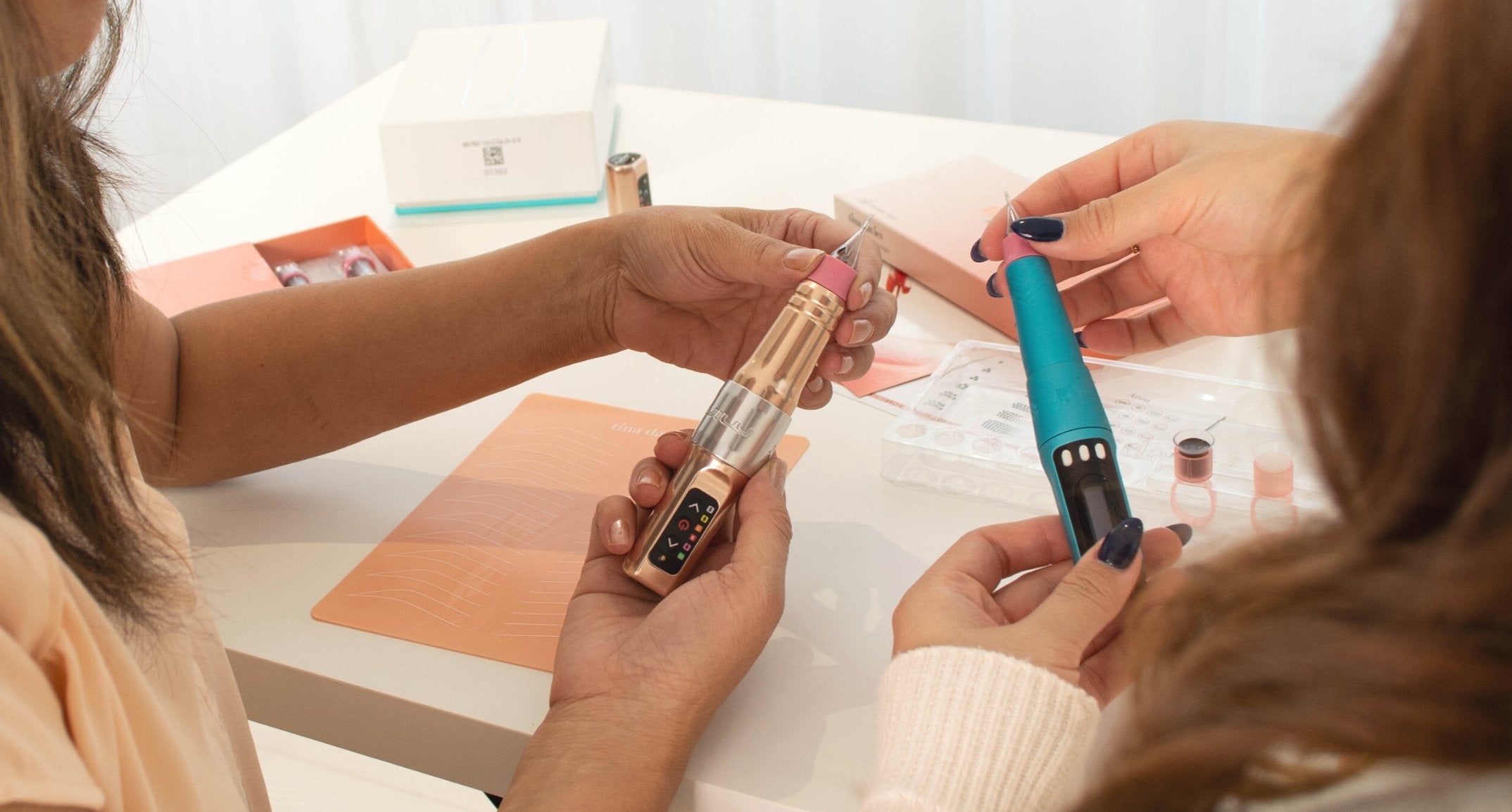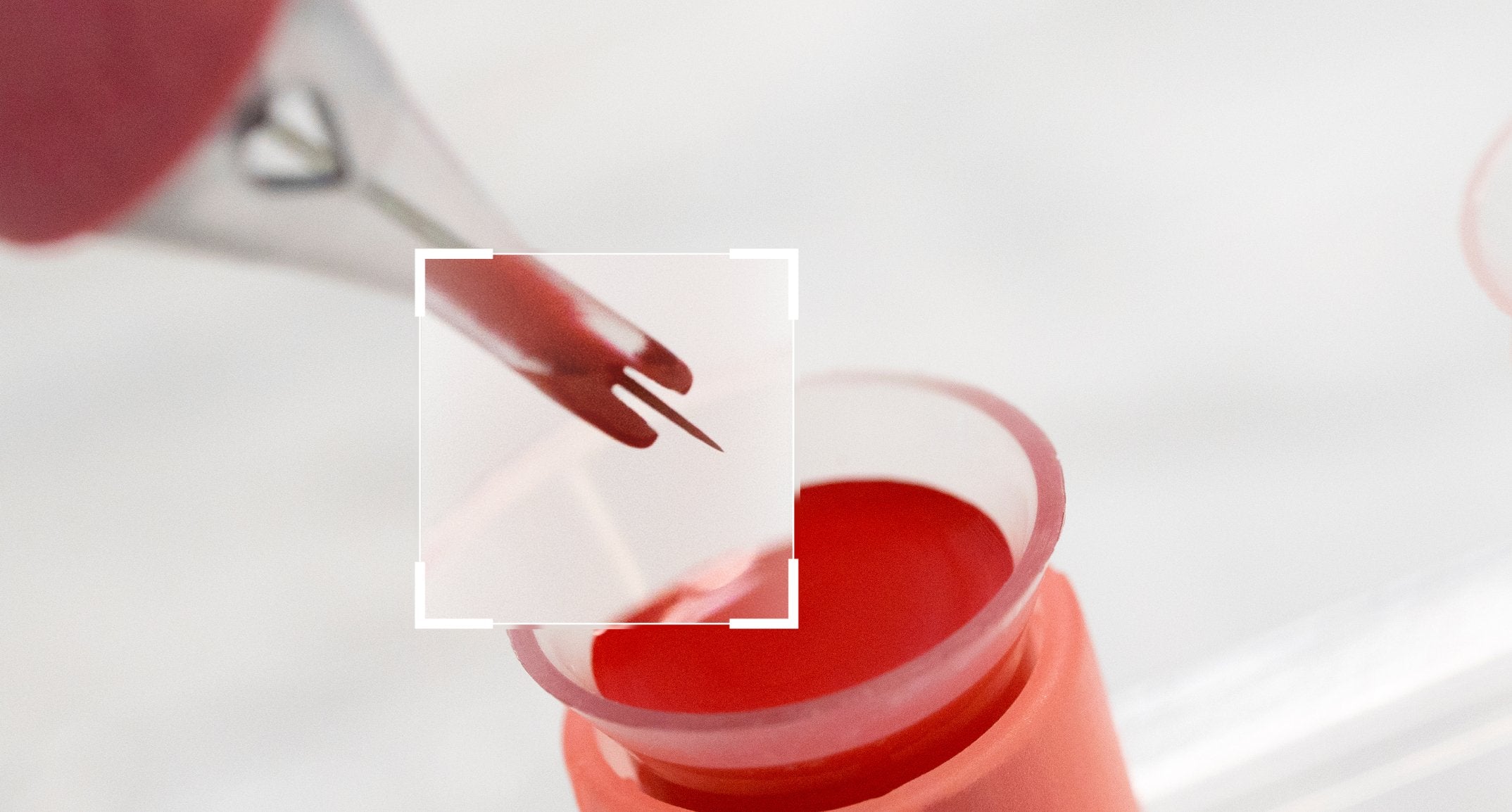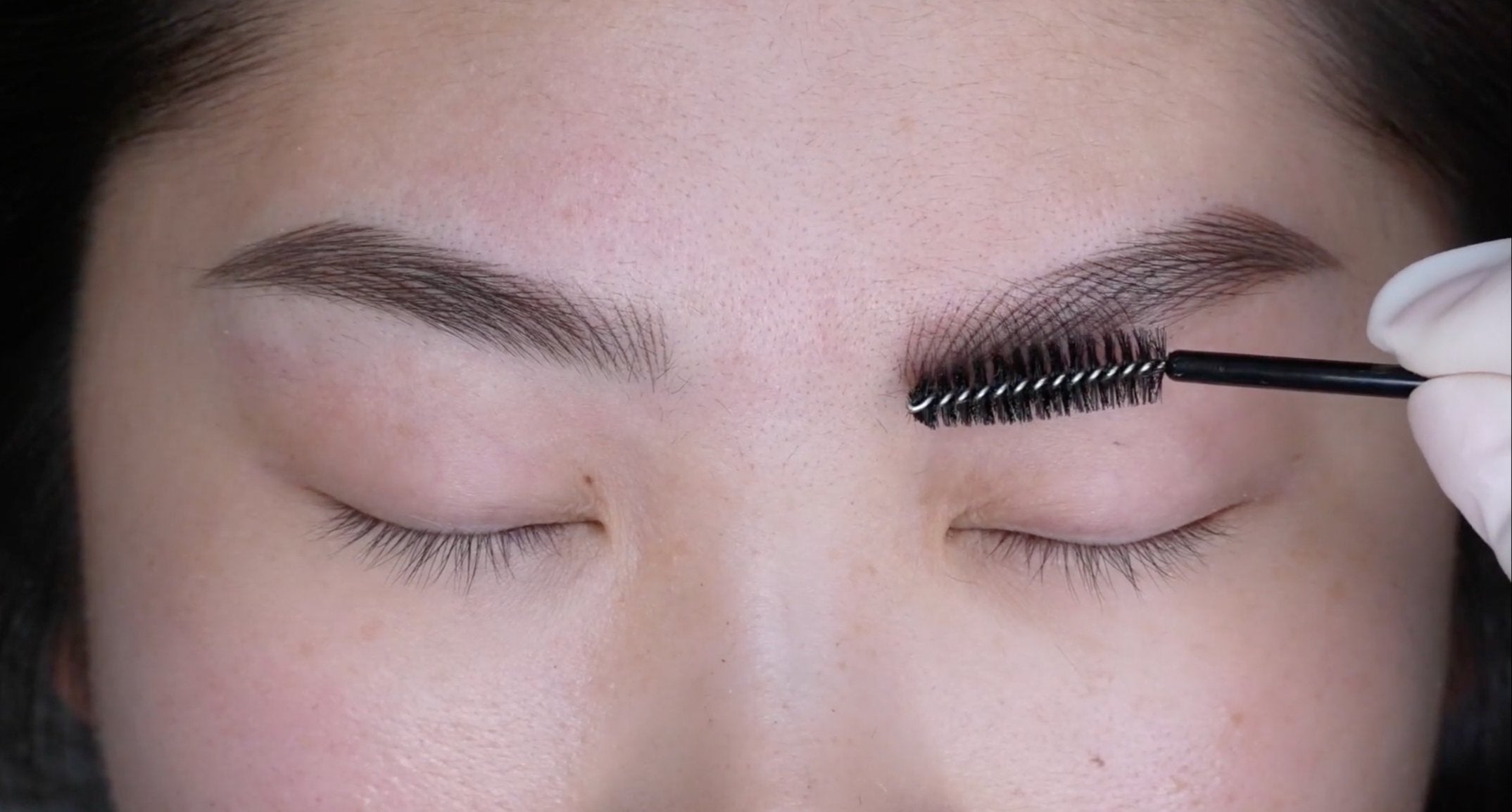
How to choose the right machine for you?
We have so many machines on the market to choose from, so how do you know which is the best one for YOU? Most PMU experts will agree that there isn’t one correct machine for everything. As you develop your technique, you’ll notice that one machine might be great for creating nano brows, but not so great while doing a dark lip neutralization service. Different machines will be great for different clients based on skin density and type, as well as the desired result. Most importantly, we recommend working with rotary machines that accept universal cartridges, such as PIXL Needle Cartridges, so that you can use your favorite needles no matter what machine you have.

What is machine stroke and why is it important?
When shopping for machines, the first thing to pay attention to is the stroke, as this affects pigment implantation and your final result.
A tattoo machine’s stroke, or hit, is the distance the armature bar travels from its most upright position to its most down position. In rotary machines, stroke refers to the amount of travel required for one rotation. The further the bearing is away from the center of the cam, the longer the stroke.
Typically, the most popular machines used by PMU artists are either ‘Short Stroke’ (1.8mm - 2.5mm) or ‘Medium Stroke’ (3.0mm - 3.5mm). However, you can also choose to use ‘Long Stroke’ (4.0mm and above).

Courtesy of Lip Magic by Jasmine Diebelius
Why is machine stroke important? The machine stroke determines:
- How hard the machine hits: A longer stroke gives the needle more momentum and power because the needle travels at a longer distance in each up-and-down motion. This allows the needle (especially larger needle groupings) to penetrate the skin more easily. However, increased power causes more trauma to the skin. Hence, short or medium stroke machines are more popular for procedures on delicate areas of the face.
- How fast the needle moves: How quickly the needle moves in and out of the tip. If your machine has a harder hit (longer stroke) this leads to a decrease in needle speed.
- Your max needle depth: A short stroke limits how far your needle can stick out. The needle’s depth must be short enough so that it is able to reach the ink inside of the cartridge tube with each up-and-down motion.
When to use different strokes:
A short stroke (1.8mm - 2.5mm) is good for applying soft color to the skin, but this may not be the best choice for thicker or resistant skin types. A soft ‘wash of color’ technique often requires multiple passes to build up layers of ink. The softer-hitting stroke allows you to create layered, smooth blends without causing damage to the skin. If your goal is a natural, soft-shaded brow or lip, this is a great stroke length for you. We recommend either the Bellar Air (2.1mm stroke length) or the Flux Mini (2.5mm stroke length).


You can use short stroke machines for outlining or denser shading. However, you may require multiple passes, and if you set the needle hang too long, it will not fully retract into the cartridge tube with each cycle. This prevents the needle from being replenished with ink, which makes getting a solid line in a single pass almost impossible. Additionally, lining requires the needle to hang farther out for improved accuracy, which is more awkward with a short stroke machine as this leads to ink puddles on the skin.
To recap, short stroke machines are great for all areas of the face (brows, lips, and eyes) for clients with thin to medium skin thickness – avoid using on thicker or resistant skin.
A medium stroke (3.0mm - 3.5mm) is best for packing color and blending. A medium stroke also has enough power for bigger needle groupings, which can speed up your working time, and is also more suitable for thicker skin types than short stroke machines. This is a great choice for many clients as it's not too soft or too hard-hitting on the skin. For medium stroke machines, we recommend either the Bellar Air or the Mast Tour Y22 – both with a stroke length of 3.0mm.


Avoid longer stroke machines for eyeliner procedures and on very delicate skin types.
What about voltage?

Voltage = machine speed.
Voltage range = how slow or fast your machine runs.
Machine speed determines the frequency of how many times the needle penetrates the skin in order to implant ink, creating pixels. This is different from hand speed, which determines the distance between the pixels. If your machine speed is slow (e.g. 4-7V), the needle doesn't penetrate the skin as frequently. You may use a slower setting to deposit less color for shading.
If your machine speed is faster, the needle penetrates the skin more frequently, creating more of a solid look with ease, but remember your machine speed + your hand speed will influence the outcome. If you want an airy shaded look, try pairing a slow machine speed with a slightly faster hand speed – this will create a more spread-out pixelation effect. If you want a more solid look, increase your machine speed slightly, but slow down your hand speed to allow your needle to deliver more color to the skin – this will create a more compact pixelation effect.
The harmony between machine speed and hand speed is the key to achieving desired effects in the skin with all needle configurations. Be sure to practice your hand speed with different machine speed settings on a practice pad and study the patterns to see what works best for you. If you notice a lot of tear-drop shapes on the practice pad, it means your hand speed is either too slow or too fast for your machine speed, causing ‘trauma’. If you like to work slower, go for a machine that allows a slower voltage. If your technique suits a fast machine speed, choose a machine that allows a higher voltage.

Courtesy of Beautè Academy’s Ombrè Brows Online Course
Machines that’ll suit your needs
We have a selection of dependable, high-quality rotary machines to choose from with different stroke length options – all having a wide range in voltage.


Now that you know more about machine stroke lengths and voltage, you can make a better decision when shopping for machines in order to achieve better-suited PMU results.



Leave a comment
This site is protected by hCaptcha and the hCaptcha Privacy Policy and Terms of Service apply.